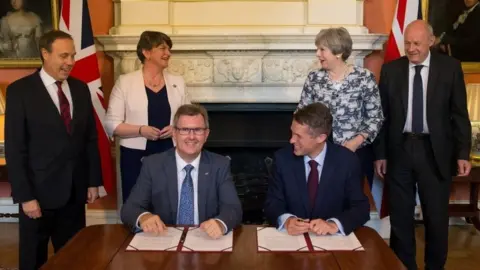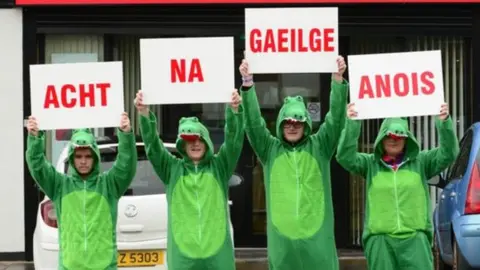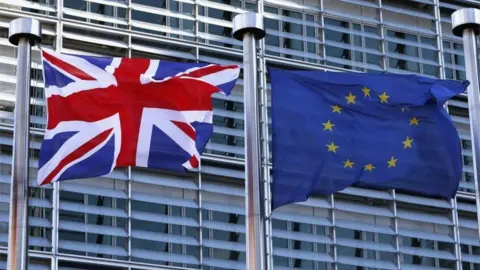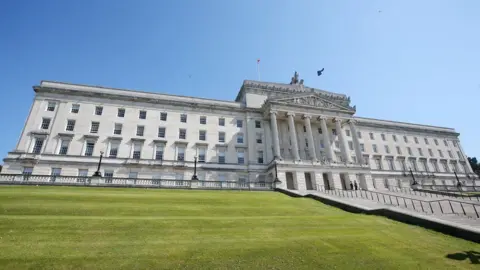Sticking points as Stormont deadline looms
 Reuters
ReutersSo the cheque is in the post after the DUP agreed to back Theresa May's minority government in Commons votes.
As a result, Northern Ireland will receive an extra £1bn during the next two years as part of the deal, but what could prevent the Stormont parties setting up a power-sharing executive to spend the money?
RHI inquiry
 tchara
tcharaThe most obvious sticking point is Sinn Féin's previous stipulation that it won't share power with DUP leader Arlene Foster until an inquiry into her controversial and expensive RHI Renewable Heating Incentive (RHI) scheme is concluded.
That inquiry is expected to take more than a year.
But after her election success and this week's deal, Mrs Foster's position within the DUP appears impregnable.
Sinn Féin must budge on their previous "red line" for a deal to be concluded.
Irish Language Act
 PACEMAKER
PACEMAKERDuring the spring Assembly election Mrs Foster vowed this would not happen "on her watch", before describing Sinn Féin as a "crocodile".
Either the DUP must drop this apparent red line or Sinn Féin must accept a wider form of legislation - a so-called hybrid model which would also cover Ulster Scots.
Legacy
 Pacemaker
PacemakerGerry Adams has previously hinted there could be a deal without resolving differences over Northern Ireland's troubled past, but it wouldn't be a strong deal.
Republicans will be dubious about a section in the DUP-Conservative agreement which said there should be no unfair focus on former soldiers and police officers.
However, the wording is loose, so perhaps they can live with it.
Brexit
 Reuters
ReutersUnder the Foster-May agreement, the DUP is committed to backing the Conservatives on any Brexit-related legislation.
Sinn Féin still backs "special status" for Northern Ireland - effectively preserving many aspects of EU membership.
So will Sinn Féin willingly take the DUP deal cash or conclude that it is inadequate compensation for the damage they believe Brexit will do to Ireland, north and south?
Same-Sex marriage and abortion reform
 Getty Images
Getty ImagesNo-one is expecting the DUP to drop its opposition to same-sex marriage.
Nor will the DUP or other Stormont parties suddenly decide to implement the 1967 Abortion Act in Northern Ireland.
But some argue that if the Stormont Assembly procedures are altered to exclude the use of cross-community vetoes on such moral or social issues, this could pave the way for movement.
However, is the DUP in a mood to curtail the veto power, which it can no longer wield without the backing of other Unionists?
Time

We have been at it a long time - discussing how Stormont might be put together again since January when the late Martin McGuinness resigned as deputy first minister.
You could argue that the Stormont parties have had more than enough time to resolve their differences.
But Sinn Féin and some of the other parties have pointed out that for most of the past three weeks the government, which set Thursday's deadline, has side-tracked one of the main talks participants, namely the DUP, into another set of talks primarily focussed on Westminster's stability, not Stormont.
So you could get some participants believing the secretary of state should stop the clock.
However, if he does the credibility of NIO talks deadlines, already pretty low, would take another plunge.
